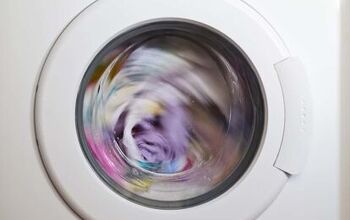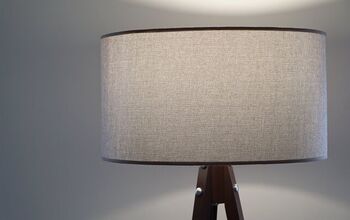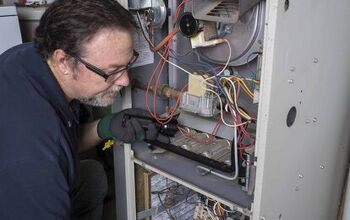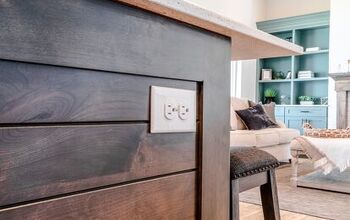What Size Breaker Does A Water Heater Need? (Find Out Now!)

A water heater ensures any water that is delivered throughout your home gets to the right place at the proper temperature whenever you need it. If your water heater runs with any sort of electrical current, it will require a circuit breaker to ensure everything runs safely over time.
To determine what size circuit breaker is needed for your home’s water heater, you will have to calculate the maximum electrical current and adjust it to account for how much of the water heater’s electrical ratings it should be able to handle. For starters, the average 4,500-watt, 240-volt electric water heater will need a 25 to 30-amp circuit breaker.
Before we make sense of all that, let’s take a closer look at everything you need to know about a water heater, so you know exactly how to determine the right circuit breaker for your own.
Do You Need Electricial Wiring or Panel Upgrade Services?
Get free, zero-commitment quotes from pro contractors near you.

Water Heater Types
There are three main types of water heaters that you can have in your home: electric, gas, and tankless. Each type of water heater works differently to heat the water supply for your home. These methods can be somewhat inferred by their names, but we’re going to talk a bit more about each of them anyway.
Electric Water Heaters
Electric water heaters work from the inside-out. What does that mean? Simple that the electrical current will warm rods that are submerged in the water supply, which in turn transfers the heat from the rods to the water.
These types of water heaters are more efficient than gas-powered units, but they are more expensive to run overtime due to how much energy they use.
Gas Water Heaters
Gas water heaters use convection to heat your water supply. Cold water is constantly coming into the tank, which is then heated by a gas burner at the bottom of it. The density of the cold water will force it to stay at the bottom while the warm water will continuously rise to the top where it can be discharged from the tank for use.
Tankless Water Heaters
Tankless water heaters heat the water supply without the use of a storage tank at all. They can either be heated through a gas burner or an electric element, which then provides a constant supply of hot water whenever you need it.
While you will never run out of hot water, it will limit flow rate. Due to the way tankless water heaters work, they do not need to be running all the time.
What is a Circuit Breaker?
A circuit breaker is a mechanism that gets set off to stop the flow of electricity from the source to the water heater. It will do this to keep you and your water heater safe when there is too much electricity moving through the circuit.
Excessive electricity will cause the wire to heat up, which can then melt the wire covering. This, in turn, can cause additional electrical issues down the road or even start a fire.
How to Know the Right Circuit Breaker Size
In order to determine the right breaker size for a water heater, electricians will calculate the maximum electric current that a circuit can hold without “tripping” or overheating. This number is calculated in amperes, or amps for short.
In the case of most circuit breakers, the National Electrical Code (NEC) states that professionals must use an 80% rule when it comes to sizing. This means that a circuit breaker should never handle more than 80% of its electrical rating.
However, in the case of water heaters, the breaker should be sized to handle 125% of its rating. This is because most water heaters must run continuously. Even water heaters that do not have to operate all the time should have a circuit breaker with 100% of its rated capacity.
Circuit Breaker Sizes for Each Water Heater Type
Different types of water heaters will need different circuit breakers depending on how much power they need to heat the water safely. It’s important to note that some regular gas tanks will have a circuit breaker, but most don’t have an electrical current, so we are just going to discuss electric water heaters and tankless gas heaters here.
Breakers for Electric Water Heaters
The circuit breaker for a 240-volt electric water heater can only power the water heater itself and should never be used with any other appliances at the same time.
Electric water heaters must run consistently, so this would be a case where it needs a breaker that can handle 125% of its electrical rating. For a 4,500-watt water heater with this voltage, you will need a circuit breaker that is 25 to 30 amperes.
Breakers for Tankless Gas Water Heaters
Tankless gas water heaters will need only a 15-amp, 120-volt dedicated single-pole breaker to power the ignition system. Since tankless gas water heaters don’t have to be running all the time, they can have a breaker that runs at 100% of its electrical rating instead of 125%.
Determining the Correct Circuit Breaker Size
Selecting the right size for your circuit breaker is crucial for your safety and the functionality of your water heater. To find the right circuit breaker size for your water heater, you should follow the following steps:
1. Check Your Water Heater’s Ratings
First, you’ll have to find and check your water heater’s voltage and wattage ratings. These numbers can most often be found on a sticker on the thermostat panel or at the base of the water heater tank itself. Otherwise, you may be able to find it in the manual or search for it online.
As a rule of thumb, most water heaters have a 4,500-watt element running on a 240-volt system. However, some commercial-grade units can run on more than 5,500 watts and others may have 3,000 watts or less. That’s why it is so important to check your specific unit ratings.
2. Find the Maximum Electrical Current
Next, you’ll divide the wattage rating by the voltage to determine the maximum electrical current. This value will tell you the amps your water heater can handle if it operated like any other electrical device that can be turned on and off regularly. However, as we discussed before, water heaters are unique.
3. Make the Final Adjustments
Finally, you must adjust the results to account for the fact that your water heater will be set to handle 125% (or 100%) of its electrical ratings. To do this, you will multiple the max electrical current by 1.25 in the case of electrical water heaters or by 1.00 for tankless gas heaters.
Potential Hazards of Having the Wrong Size Breaker
Having the correct size circuit breaker for your water heater is crucial for the safety of your water heater, the breaker, and the people living inside your home. Here are some common issues that can occur if you have the wrong size breaker for your water heater.
Shock Hazard
It’s true that if your breaker is too large, it will still trip if there is a direct electrical shortage, but it won’t recognize any issues with a burned wire or crossed wires. Even this small malfunction can be a potential shock hazard.
Fire Hazard
If your circuit breaker is undersized, it won’t be able to handle the electrical current needed to run your water heater, which can cause the wires to overheat and melt. This can cause electrical issues and sometimes lead to a house fire.
Breaker Damage
The wrong size circuit breaker can lead to the breaker itself getting damaged, which will mean a big headache for you. You’ll have to shut off the water heater and replace the breaker, so everything works properly once again, which will take time and money.
Water Heater Damage
A breaker with the wrong size can also lead to bigger problems with your water heater overall. Whether it causes you to need minor repairs or a complete replacement, you’ll have to deal with the hassle of renovations and time without your water heater on.
Related Questions
What causes electric water heaters to trip the circuit breaker?
There are a couple of different issues that can cause your water heater circuit breaker to trip, including a burnt-out heating element, a faulty thermostat, and wiring or electrical issues.
Do gas water heaters need a circuit breaker?
Most gas models do not require an electrical connection, but it is not uncommon for gas units to have a circuit breaker. This is most often the case when a gas water heater has an electrical current to make them more efficient.
What is the lifespan of an electrical breaker?
Typically, electrical circuit breakers last between 30 and 40 years according to the Consumer Product Safety Commission (CPSC).
Do You Need Electricial Wiring or Panel Upgrade Services?
Get free, zero-commitment quotes from pro contractors near you.

Final Thoughts
Choosing the wrong size for your water heater’s circuit breaker can range from a minor inconvenience to a major safety hazard, which is why it is so important to be precise when calculating the size of the circuit breaker you need for your specific water heater.
Depending on if you have an electric water heater or a tankless gas water heater, you will need different sized breakers to handle the electrical flow. If you don’t feel confident measuring the breaker for your water heater, you can always get in touch with an electrician to assess your water heater and install the correct breaker to ensure your home stays safe and comfortable.
Related Guides

I am a copywriter and editor based in the Las Vegas area with nearly a decade of experience under my belt writing landing pages, cost guides, blog posts, newsletters, case studies, and social media content. I have a degree in Strategic Communication and experience working in both the account and creative spheres. My goal is to always be discovering new interests and bettering myself as a writer and editor along the way.
More by Kerry Souder



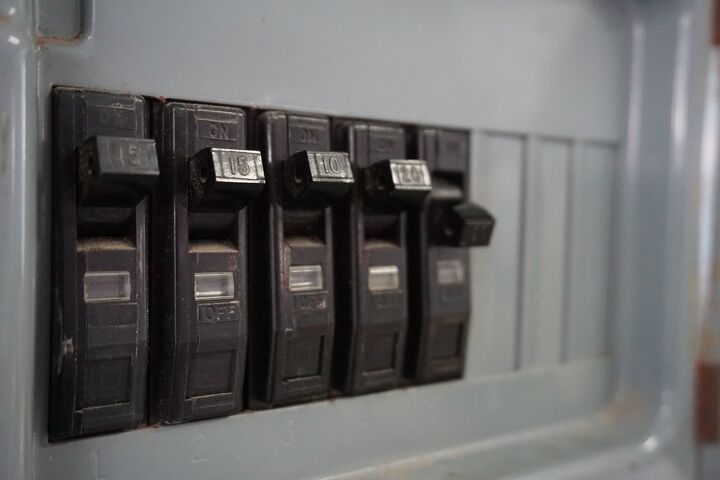






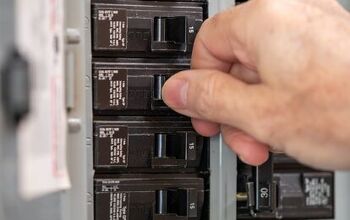

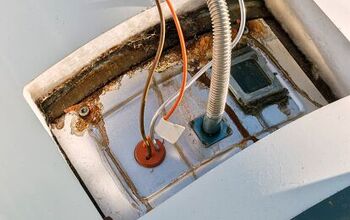
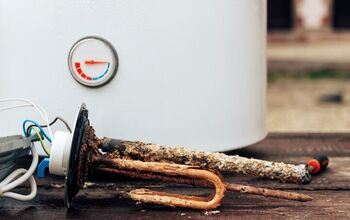
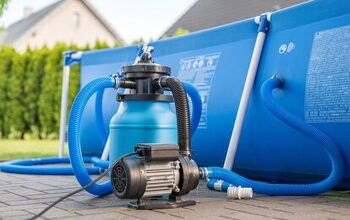
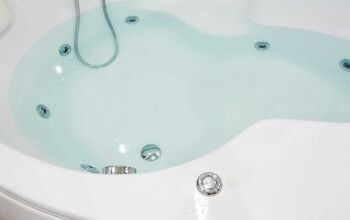
![How To Reset A Whirlpool Cabrio Washer [In 5 Easy Steps!]](https://cdn-fastly.upgradedhome.com/media/2023/07/31/9076531/how-to-reset-a-whirlpool-cabrio-washer-in-5-easy-steps.jpg?size=350x220)




